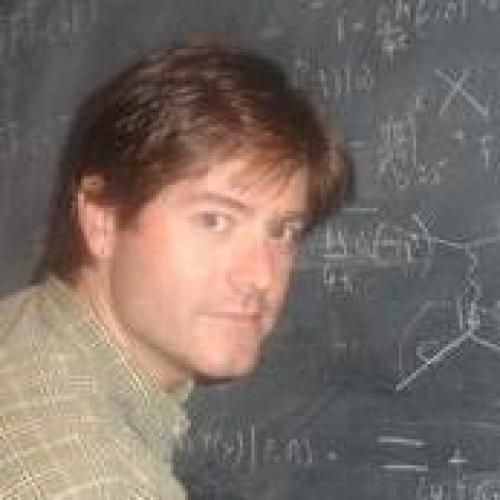Overview
Prof.~Thomas Mehen works primarily on Quantum Chromodynamics (QCD) and the application of effective field theory (EFT) to problems in hadronic physics. EFTs rely on three key ideas: i) identifying the relevant degrees of freedom for a specific physical process; ii) using symmetries of QCD to simplify or constrain the form of interactions; and iii) finding small parameters, either small coupling constants or ratios of disparate mass scales, which can be used to formulate systematic perturbative calculations of observables.
Much of Mehen's research involves hadrons containing one or more heavy quarks. A long standing problem in QCD is understanding the production mechanism of heavy quarkonium (bound states of heavy quarks and antiquarks) in collider experiments. Mehen has worked on this problem throughout his career. Recently he and his collaborators proposed new tests of quarkonium production theory involving quarkonium produced within jets which motivated experimental measurements by colleagues at the Large Hadron Collider (LHC). Another important area of research is exotic quarkonium. Since 2003, particle and nuclear physics experiments around the world have discovered dozens of unusual particles that do not fit in to the conventional picture of quarkonium as a nonrelativistic bound state of heavy quark and antiquark. Some of these so-called XYZ mesons are thought to be molecular bound states of heavy mesons. Mehen has invented EFTs for these particles that are widely used to predict the properties of these mesons and interpret experimental data.
Mehen played a role in developing the Soft Collinear Effective Theory (SCET) which is an EFT suitable for processes in which there are one or more highly energetic quarks or gluons. This theory is now widely used in the study of energetic jets of particles produced at the LHC and other collider experiments. Mehen has been a leader in applying SCET to quarkonium production in colliders. He is also an expert on EFTs for strongly interacting systems with shallow two-body bound states and/or large scattering lengths, and has applied these EFTs to a wide variety of physical systems: low energy two- and three-body nuclear physics, the XYZ mesons, cold trapped atoms, and strongly interacting nuclei embedded in a QED plasma, which is potentially relevant for astrophysics and cosmology. In his research, Mehen frequently applies heavy hadron chiral perturbation theory (HH$\chi$PT), which combines the heavy quark and chiral symmetries of QCD and is used to study the low energy behavior of heavy hadrons. Mehen and his student invented a version of HH$\chi$PT suitable for baryons and tetraquarks with two heavy quarks for the purpose of studying the doubly charm baryon recently discovered at the LHC and related states.
Some Prof. Mehen's work crosses over into other areas of physics. For example, techniques developed for nuclear physics have been used to calculate three-body corrections to the energy density of a Bose-Einstein condensate whose atoms have large scattering lengths. Prof. Mehen has also worked on novel field theories which arise from unusual limits of string theory. Examples include noncommutative field theories and theories of tachyonic modes on non-BPS branes.

